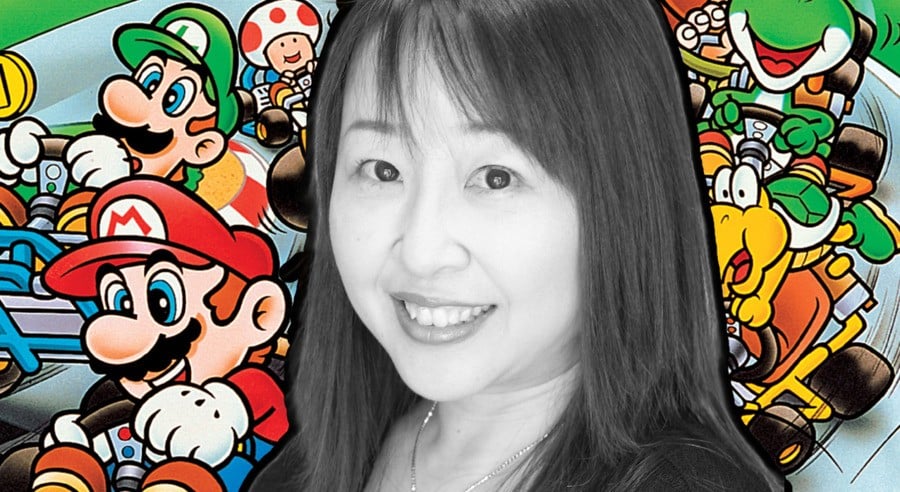
Typically, when people talk about their favourite Nintendo composers, there is a tendency for one name to dominate the conversation: the Super Mario Bros. and The Legend of Zelda composer Koji Kondo. However, it should be noted that he isn't the only genius to have provided music for the famous developer.
Over the years, there have been countless others who have contributed greatly to Nintendo's amazing musical legacy, with one of our favourite musicians being the Pilotwings, SimCity, and Super Mario Kart composer Soyo Oka. Oka is another individual who has a legendary back catalogue behind them, having written the scores for the Famicom Disk System titles Ice Hockey and VS. Excitebike, as well as the aforementioned 16-bit classics. She joined Nintendo in 1987 — shortly after leaving the Osaka College of Music — after she looked up their number in a local phone directory and stayed with the company until 1995, which is when she decided to go freelance.
Over the last couple of weeks, we had the privilege of asking Oka some questions about her incredible career at Nintendo, such as her journey to joining the company, her first impressions of working there, and of course, her thoughts on some of her most iconic soundtracks. The interview was conducted in a mixture of Japanese and English, with Liz Bushouse helping to translate some of Oka's answers, while Jayson Napolitano of Scarlet Moon Productions helped to coordinate the conversation.
Time Extension: Just to start off, it would be great to know. When did you first begin to show an interest in playing music? What were some of the earliest examples of music you remember listening to growing up?
Oka: I first started learning how to play piano when I was 4, but it wasn’t until I was 8 and older that I started performing regularly in school recitals and things like that, and I think that really helped me develop a love for music.
I didn’t develop a real appreciation for music until I was in elementary school. I liked piano pieces by Chopin and Liszt during my upper elementary and middle school years. Liszt’s Liebesträume, and Chopin’s Piano Sonata No. 2 and Polonaise in A♭ major, Op. 53 were some of my favorites. In middle school, I joined a wind ensemble and gained a fondness for wind instruments, too.
Time Extension: What was your first experience going from performing other people's music to thinking about things like composition? Was that at Osaka University where, we believe, you studied composition? Or even earlier?
Oka: I started composing music when I was about 12 years old. I was 15 the first time I played a full piece I had composed in front of other people. The piece used a combination of both violin and piano.
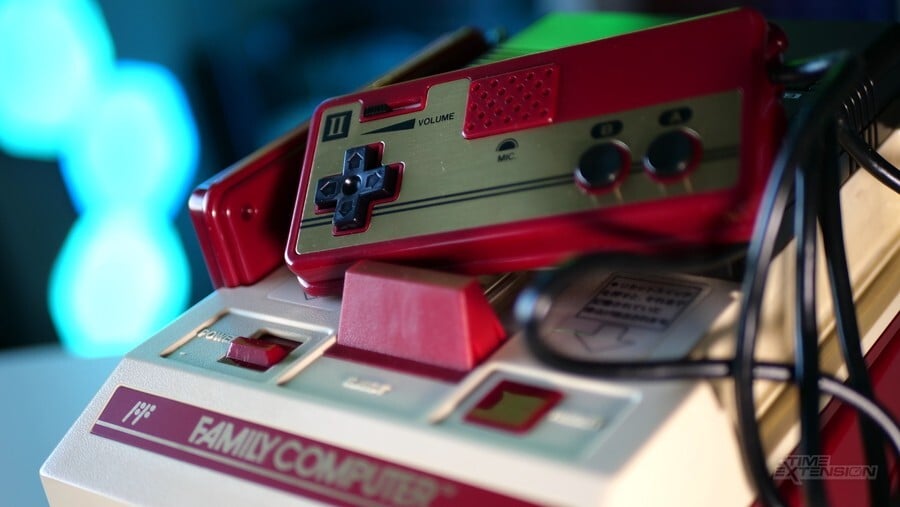
Time Extension: I’ve seen you mention the British band Queen as one of your favourite artists during high school and college. Were they also important in your early development as a musician?
Oka: I loved Queen when I was in high school. I also liked other Western music, such as The Cars, XTC, David Bowie, Paul McCartney, and Yes. But at the time I considered myself a purely classical kind of girl, so I was convinced that their music didn’t influence my compositions at all. But looking back now as an adult who’s composed for a wide variety of genres, I think that experience was very beneficial.
Time Extension: After graduating from the University of Osaka, you got a job at Nintendo by calling them up directly from a phonebook. We're wondering — how familiar were you with the Famicom phenomenon when you arrived at the company?
Oka: I wasn’t really the kind of kid who played video games. My family had the Game & Watch that was released before the Famicom. So I wasn’t highly familiar with video games. Nevertheless, I applied to Nintendo because I thought how wonderful it would be to be a full-time employee of a company where I would be able to compose music professionally, which is something I love.
Over time, I did become more interested in games, however. Some of my favourite titles from the time I was at Nintendo are Irem's R-Type, Namco's Assault, Capcom's Mega Man, and Sega's OutRun. There are others that I could name, but those are the ones that immediately spring to mind.
Time Extension: When you joined Nintendo, what was the audio department like at the time?
Oka: It wasn’t separated from the rest of the company, so we worked near the designers, which meant that we were often influenced by the music they were listening to, and we’d also go to concerts with them.
Time Extension: Some of your earliest soundtrack contributions at Nintendo were for the games “Ice Hockey” and “Vs. Excitebike” for the Famicom Disk System. Do you have any specific memories of working on those games?
Oka: Each game had its own director and I think the director gave us different instructions, but it was so long ago I'm sorry, I have forgotten the details. But one thing I do remember is that I think they let us make the games freely and spontaneously at the time.
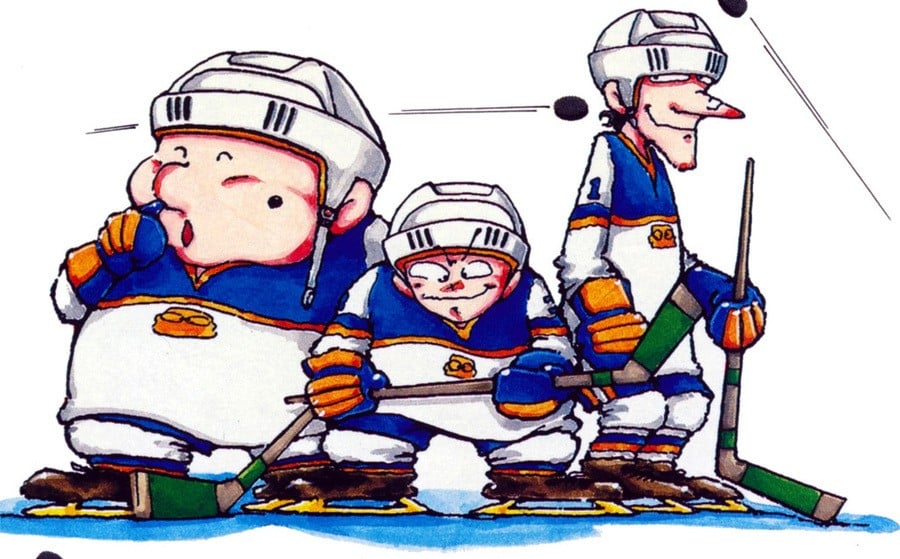
Time Extension: What were some of the unique characteristics of composing for the Disk System?
Oka: The programmable sound generator (PSG) was equipped with the addition of an FM sound source. I got the impression that this really stood out above the other sounds.
Time Extension: For the NES release of Ice Hockey in North America/Europe, we believe there were some changes to the in-game theme and the goal theme. Do you remember why these were altered? Was it due to technical limitations or something else entirely?
Oka: I was told to compose different tracks for the Japanese version and Western version. I’m not sure why.
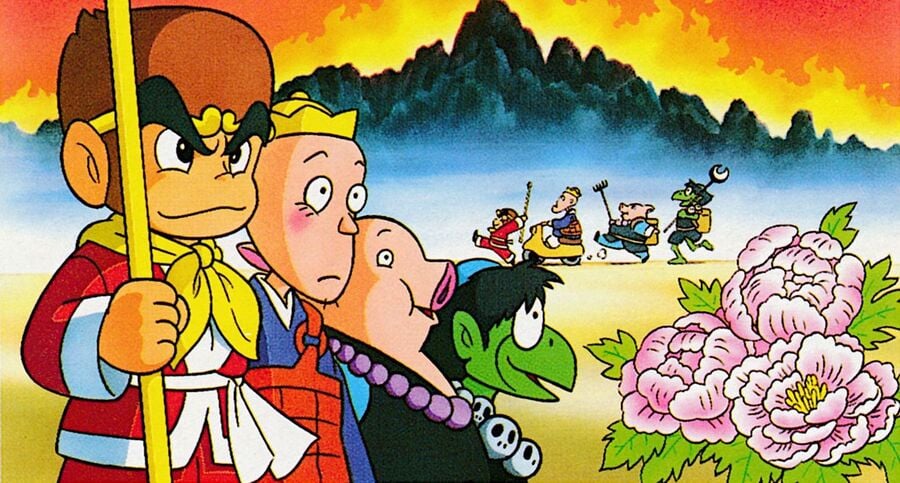
Time Extension: Another early game you worked on was the 1989 adventure title Famicom Mukashibanashi: Yūyūki, which required a significant amount of music. What was your experience like working on that title compared to the earlier more arcade-style games you worked on? Do you have any favourite tracks from working on the game?
Oka: There were so many tracks, especially compared to the sports games I had previously worked on which hardly had any. So I was really happy about that. There were three songs, in particular, that stood out to me as my best work on that game. The first is the main background music with the Chinese-style three-beat rhythm, another is the main background music with the clear melody-like song, and one more is the ending theme. I'm sorry I can't remember the names.
Time Extension: After Famicom Mukashibanashi: Yūyūki, you went on to work on Pilotwings on the Super Famicom. What was it like moving from the FDS to the SFC?
Oka: The Super Nintendo Entertainment System (SNES) has given us much more freedom in music production compared to the NES. However, I also felt that there were still many restrictions in terms of capacity from the number of ports.
Time Extension: Do you remember what your recording setup was like at the time for composing Super Famicom music?
Oka: It was very labour-intensive because I had to compose on a synthesiser and then run it through a middleware program I created to get it into the game. My favourite equipment I used to compose music was Yamaha, Roland, and AKAI products.
Time Extension: Your next game after Pilotwings was SimCity for the Super Famicom. How did your approach for that game differ from your previous work on Pilotwings? Could you talk about the differences between what you wanted to achieve for each soundtrack?
Oka: If Pilotwings can be described as dynamic, then SimCity would be static. So I wanted to create music that wouldn’t annoy or stress players out while they were building their cities. But I did want to leave a positive impression too, so that players would be glad that music was included rather than there being pure silence. Something that would be soothing. I think that was my main goal, from what I recall.
Time Extension: You also composed music for the NES version of SimCity (unreleased). I’m not sure if you saw but a prototype of the NES version was discovered a few years back, and included 10 tracks that you had composed for the project. What do you remember about the NES version of SimCity?
Oka: It’s great that so many years later people are talking about this project I thought nobody would ever hear. I can’t say much about the project given it was not released. But I will share at least one memory. The Metropolis track was originally composed for the Famicom version, and I used an arranged version of that track for the Super Famicom game.
Time Extension: The Super Mario Kart soundtrack is perhaps your most famous work in the video game space. What was it like composing music for the Mario character? Did you get much guidance from Koji Kondo prior to starting work on the project?
Oka: I don’t remember getting much guidance from Mr. Kondo in terms of how to compose music for it. But his music for the Mario games always left a cheerful, sort of tropical impression, so I did my best to match that, or at least I think that’s probably what I had in mind.
Time Extension: Do you have a favourite piece of music from Super Mario Kart? If so, can you explain what piece of music and why?
Oka: I particularly like Rainbow Road. That song, strangely enough, didn't take much effort. It was pretty immediate and I managed to get it the way I wanted straight away.
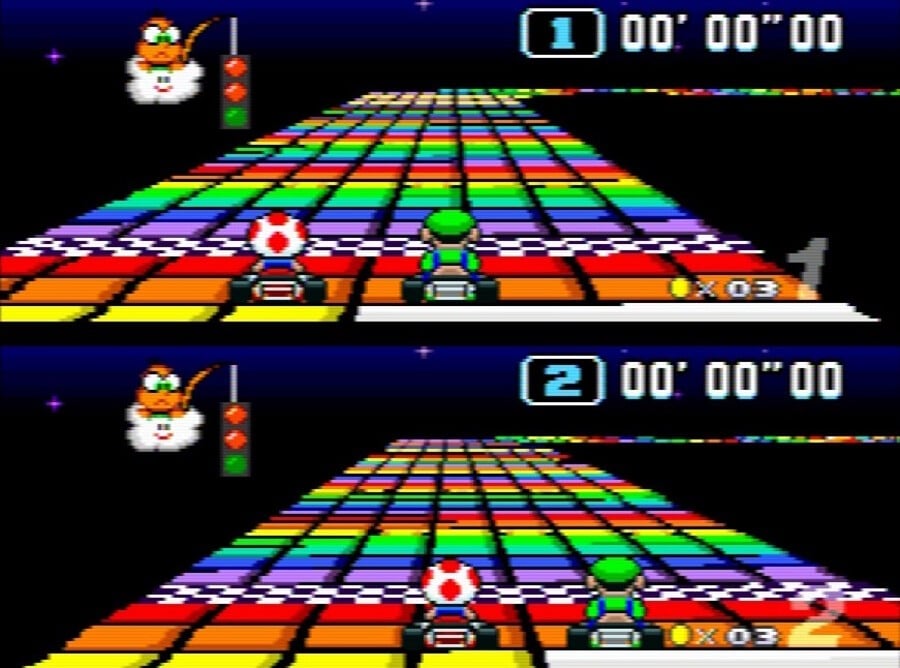
Time Extension: You also later worked on Super Mario Allstars as an arranger. Do you have any special memories of that project?
Oka: I think I received the original music files and sheet music from Mr. Kondo, to be able to reference them during my work. It was certainly fun and I learned a lot in the process of arranging his music for the SNES.
Time Extension: Since leaving Nintendo, you’ve got to work on a lot of different projects across television, radio, and games. Recently, you contributed a track to the title Abathor, for example. What was that project like for you?
Oka: There was no video, so I created it somewhat from my imagination, based on what I heard from the other party and still images. The sound source was Super Nintendo-like, but there was no limit to the number of initial sounds, and I created it with a sense of nostalgia.
Time Extension: How do you feel looking back on your work at Nintendo all these years later? Are you surprised people are still remixing, referencing, and dissecting your work? Do you have a message for those people?
Oka: Yes, I’m very surprised. I wish I could go back and tell my past self about it and encourage her to keep working hard. Thank you so much everyone for the boost! I really appreciate it.
Time Extension: Thank you for your time! We appreciate the opportunity and we can't wait to hear more of your music in the future.











